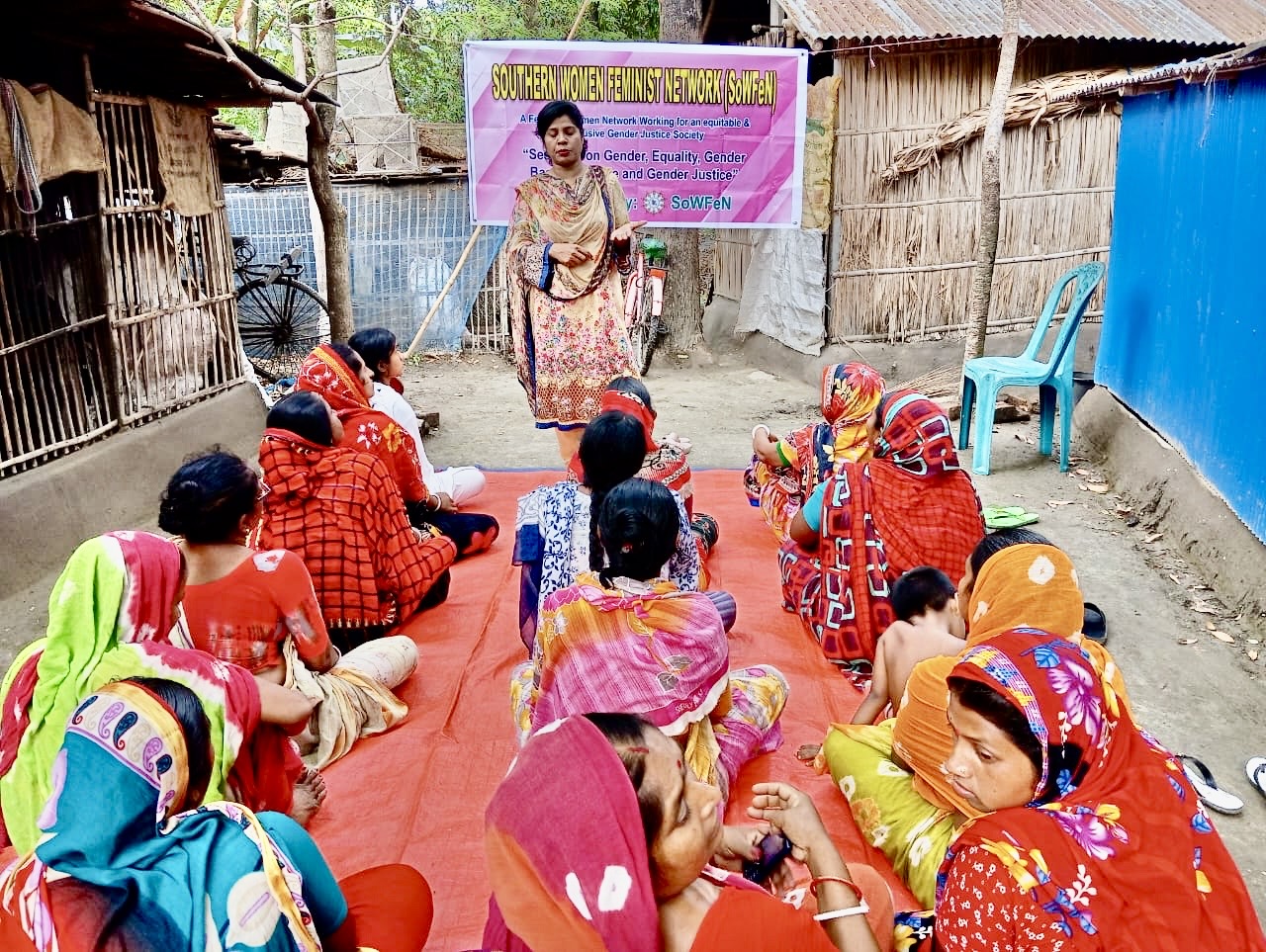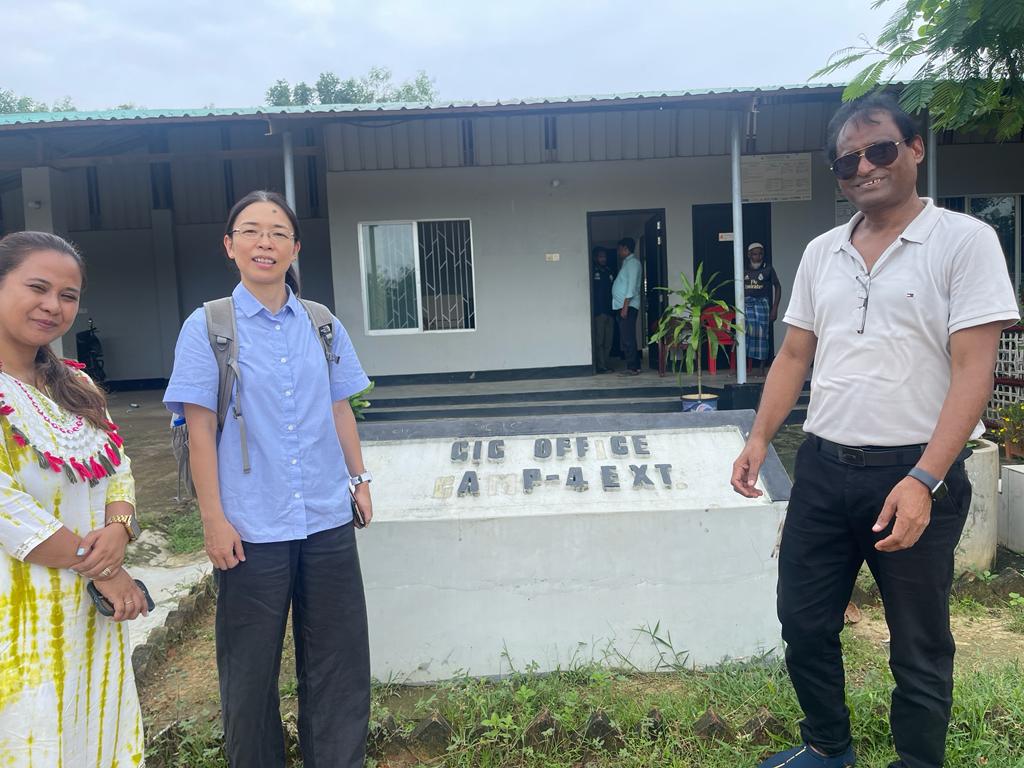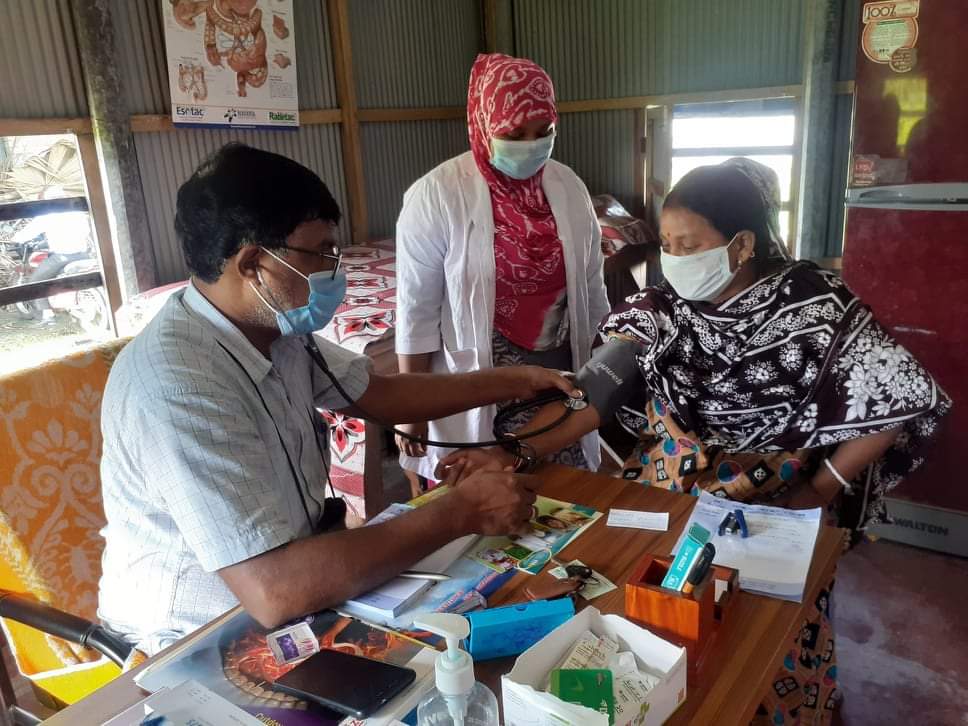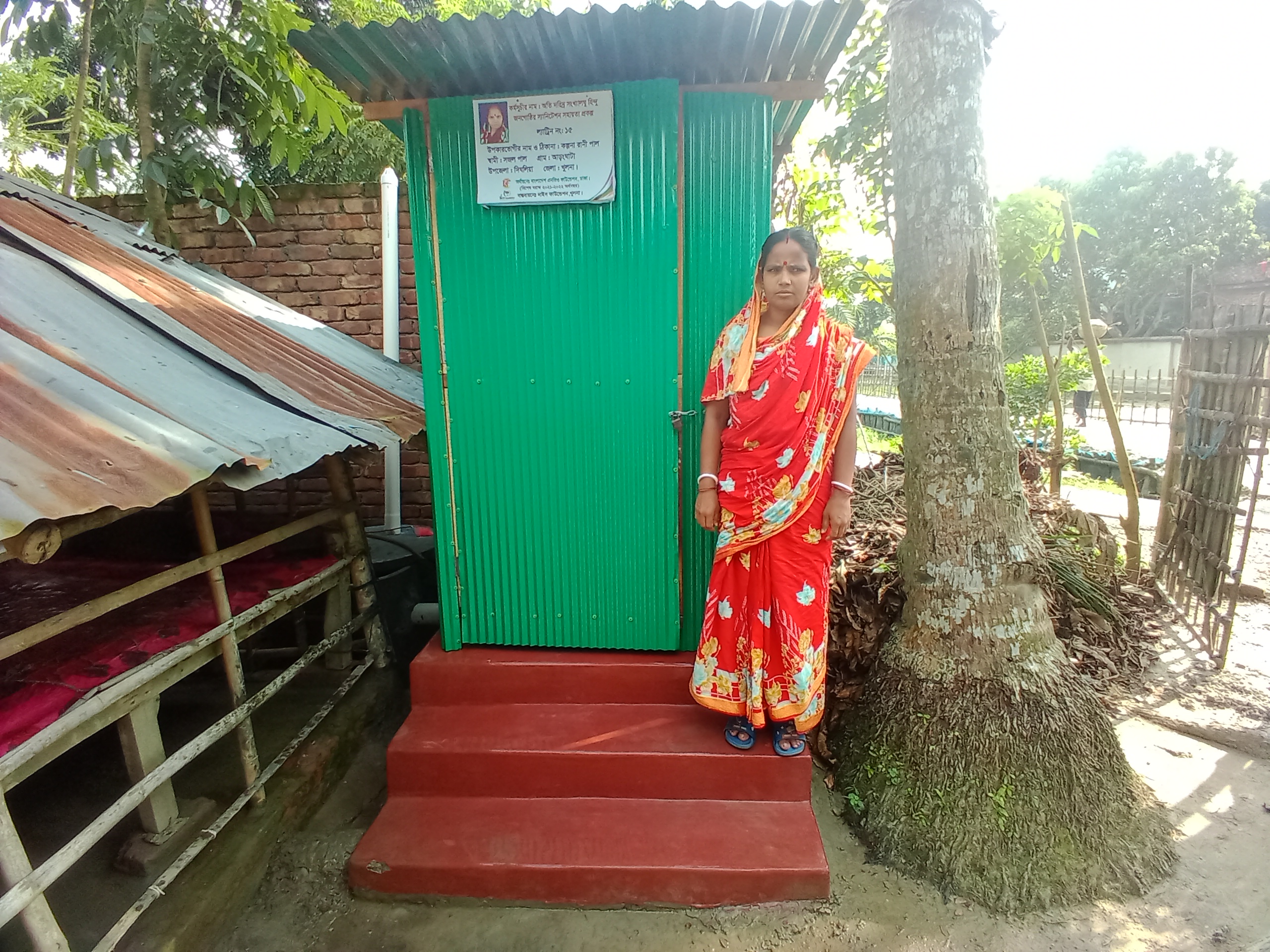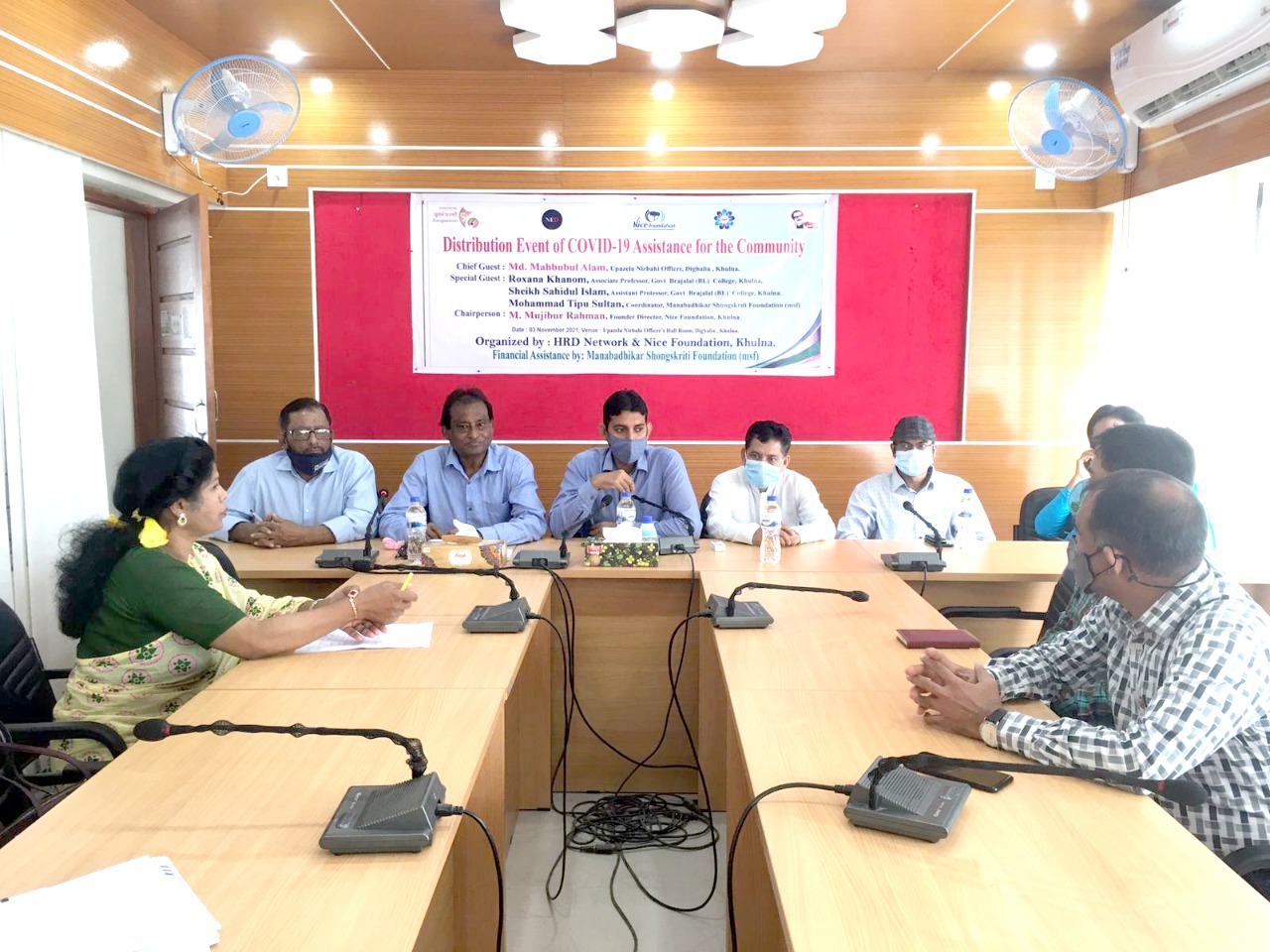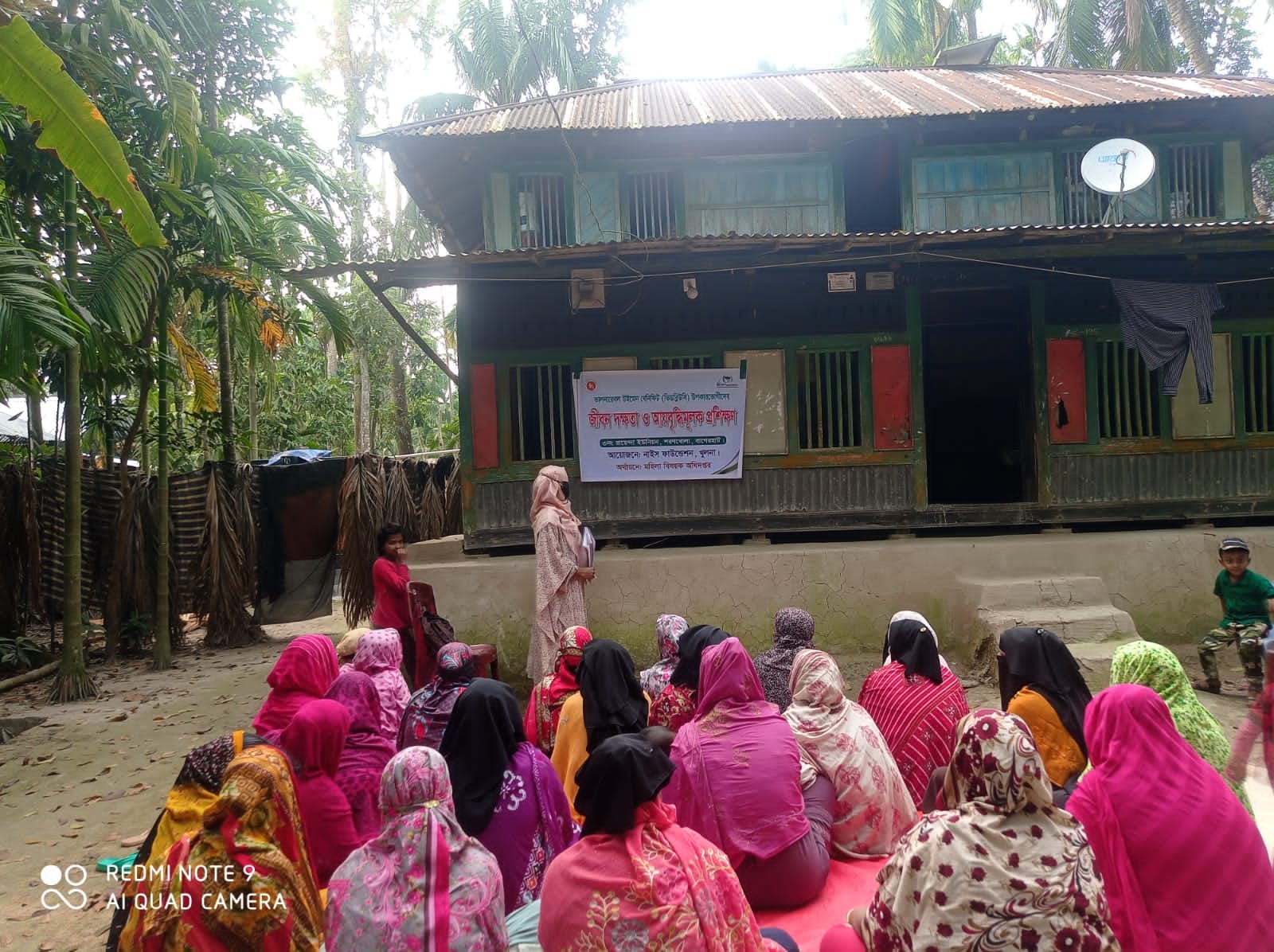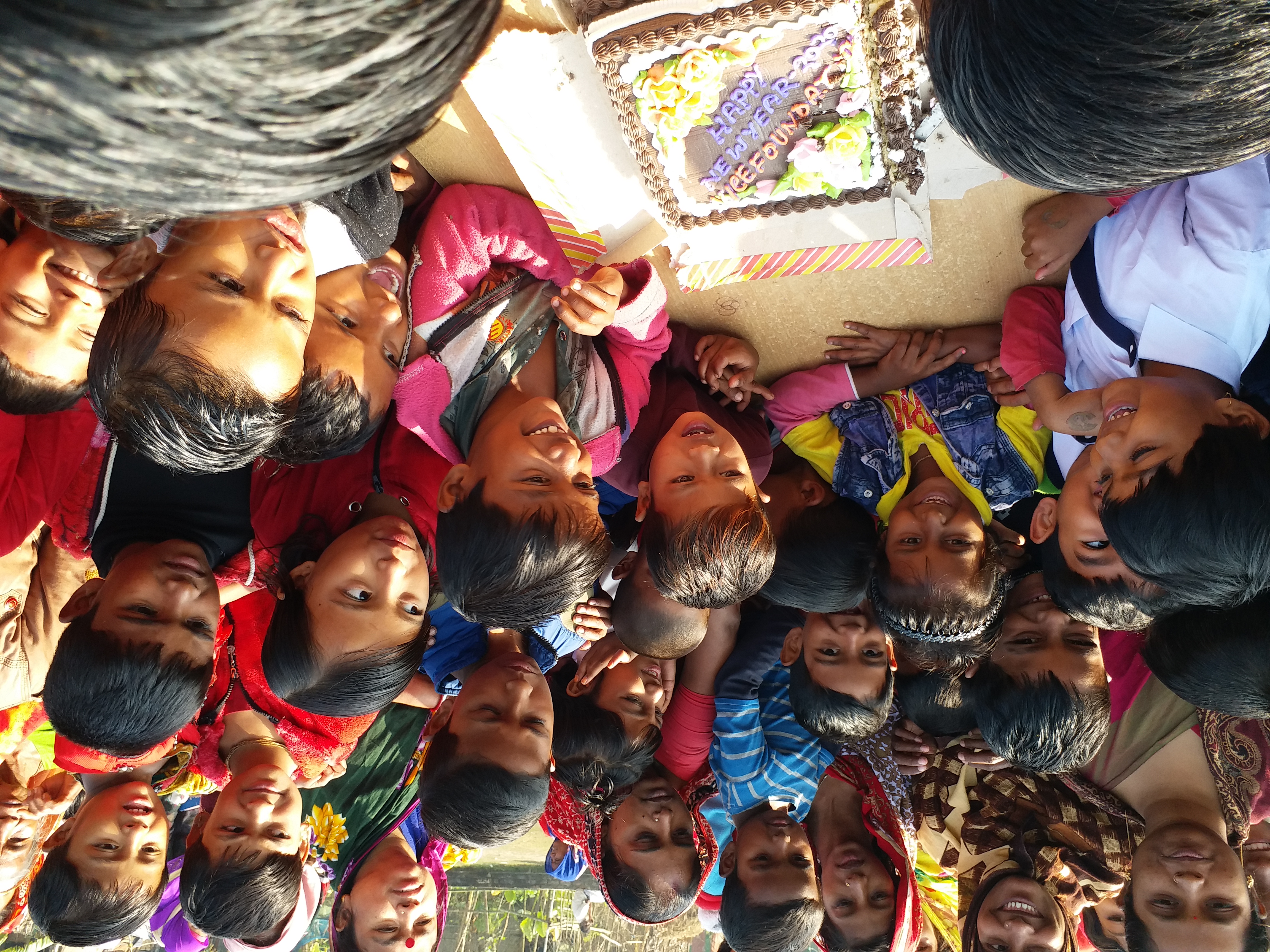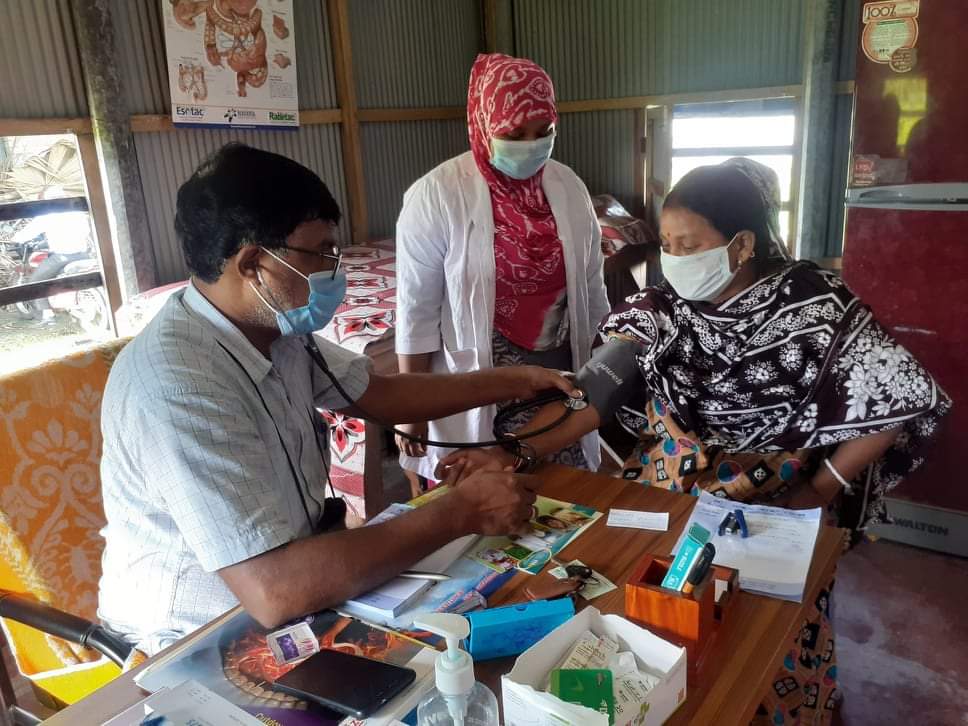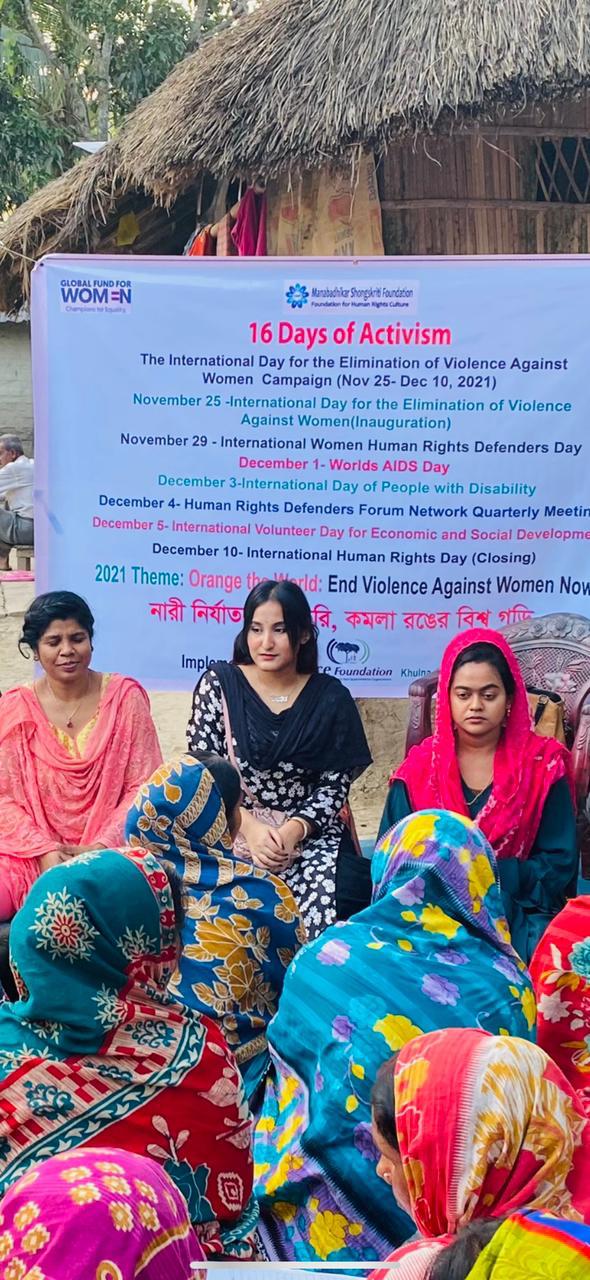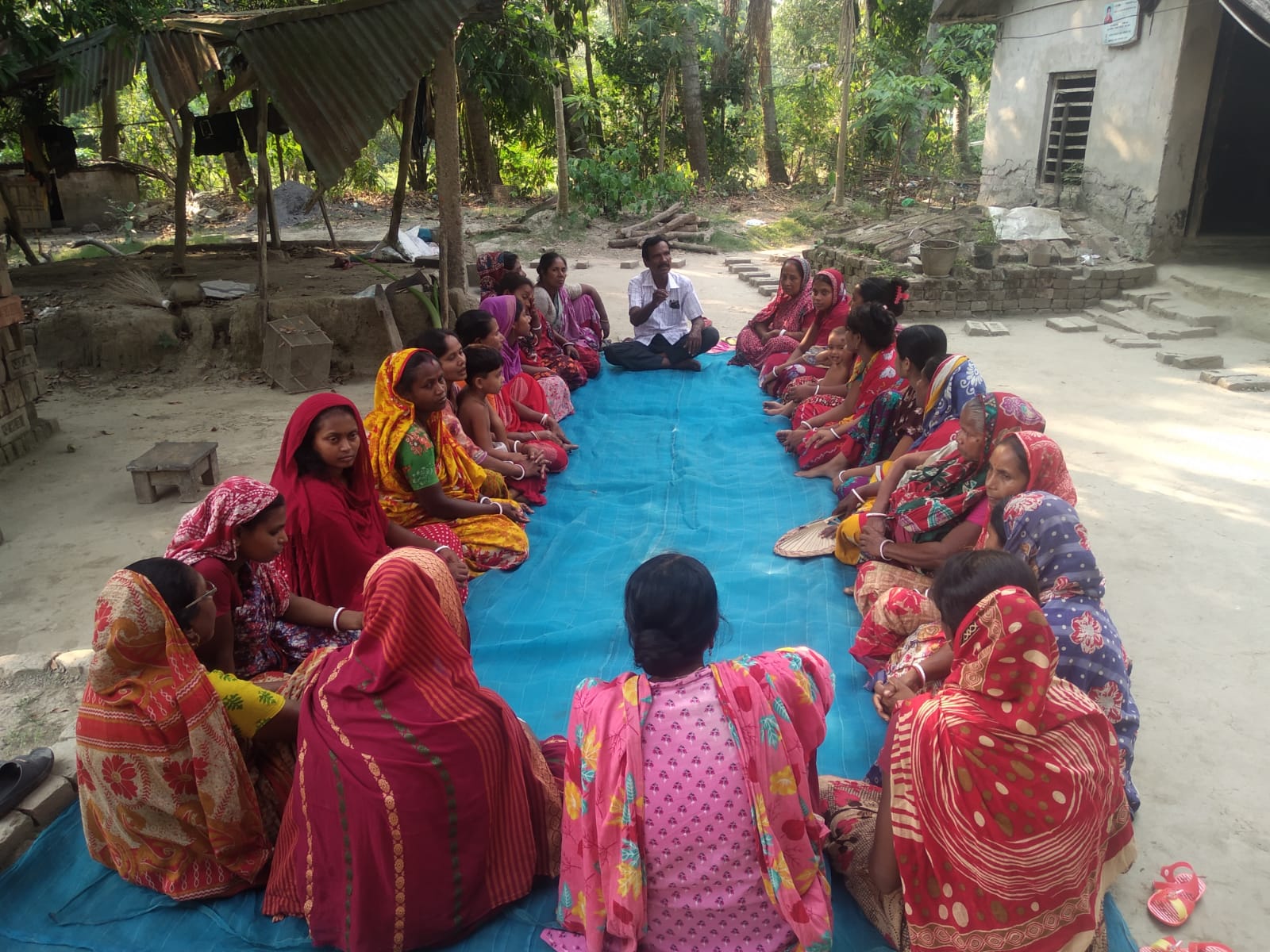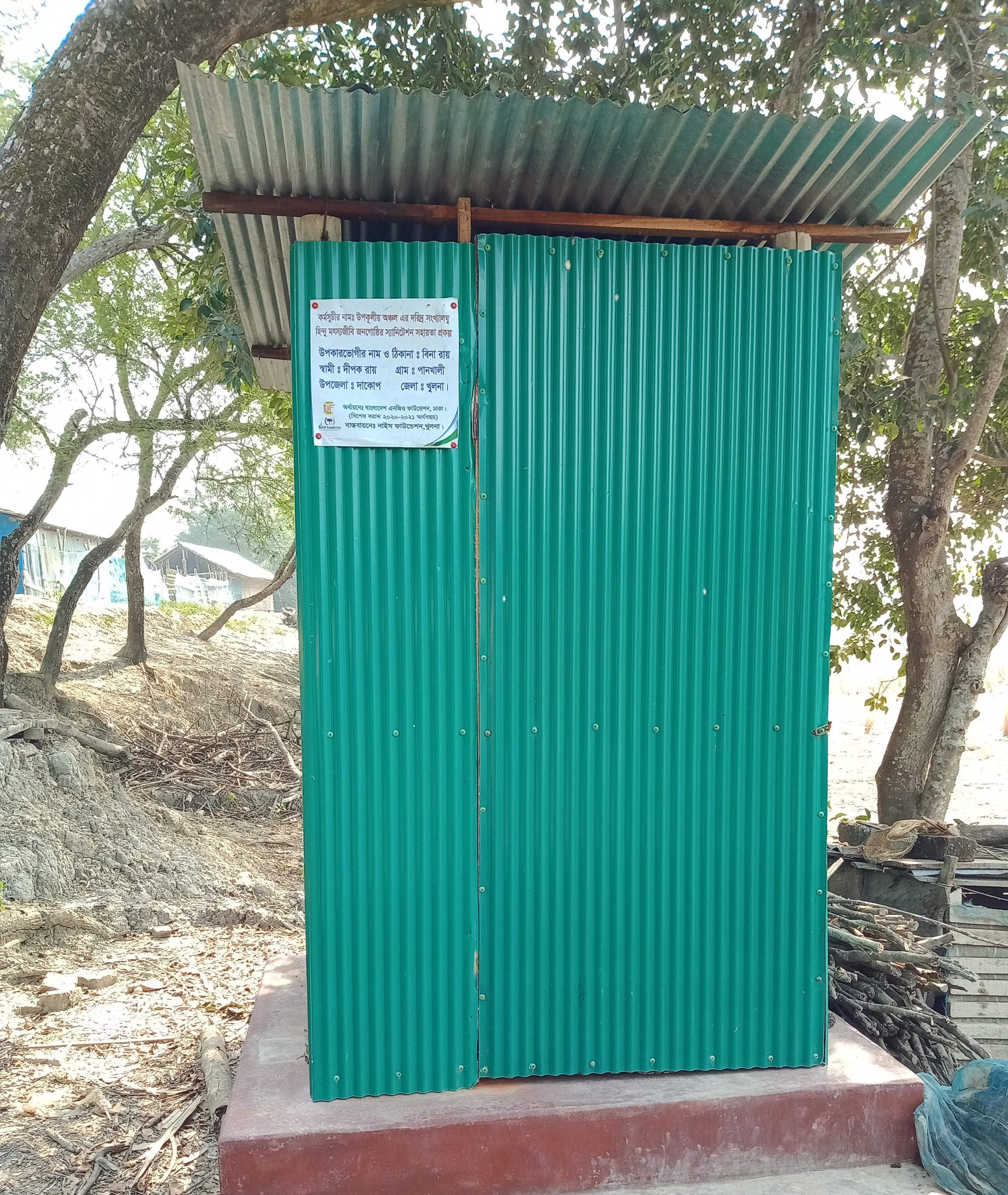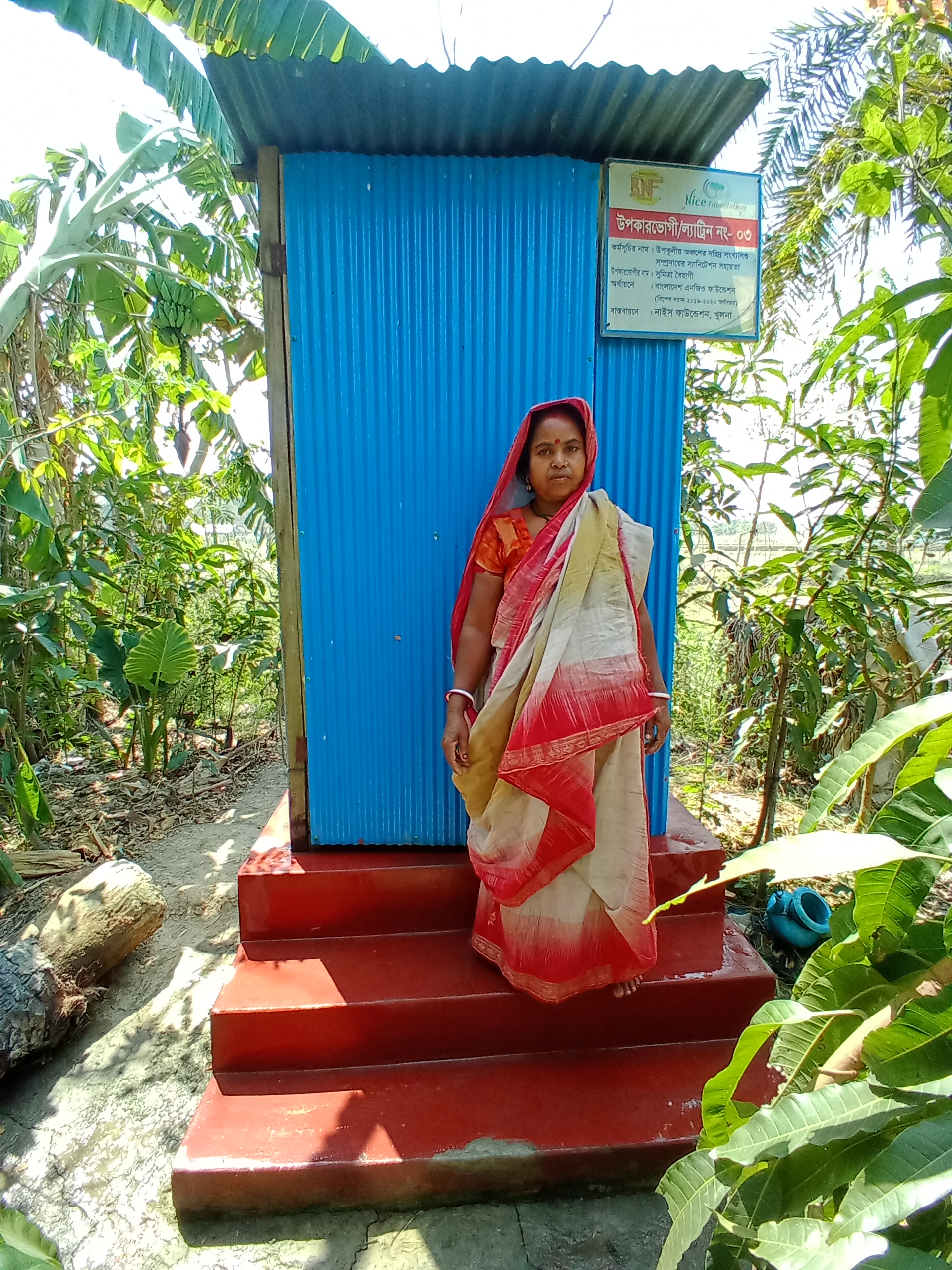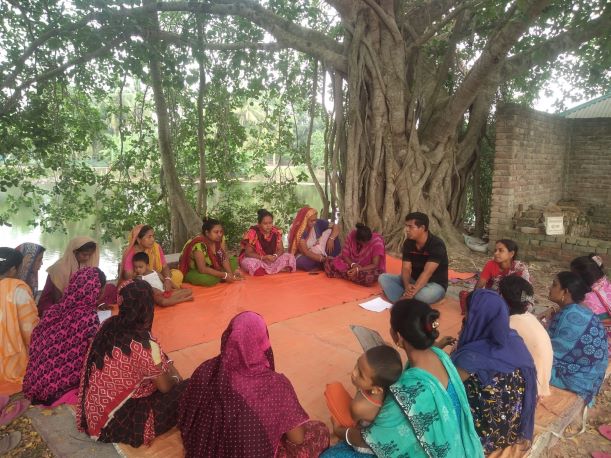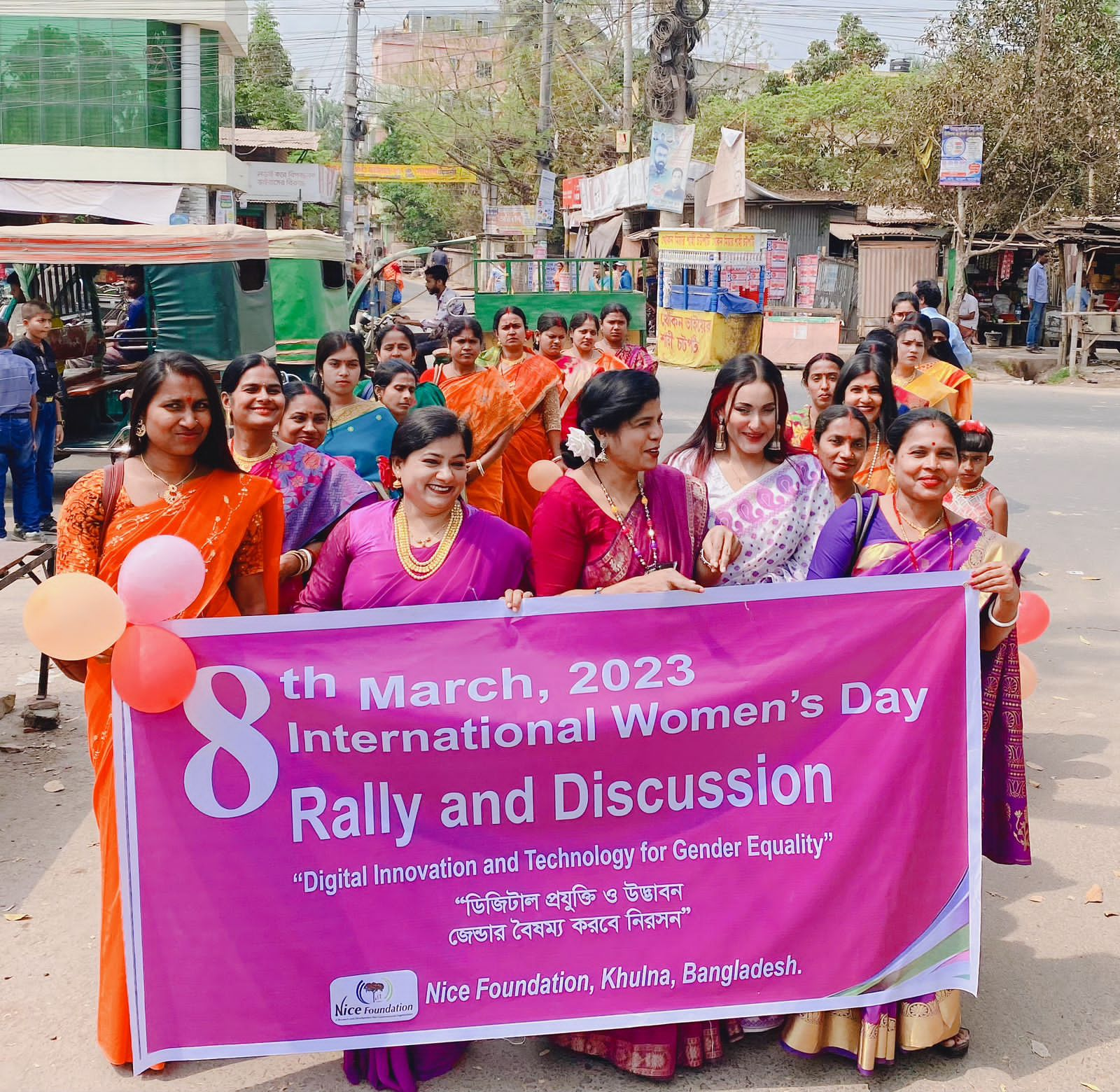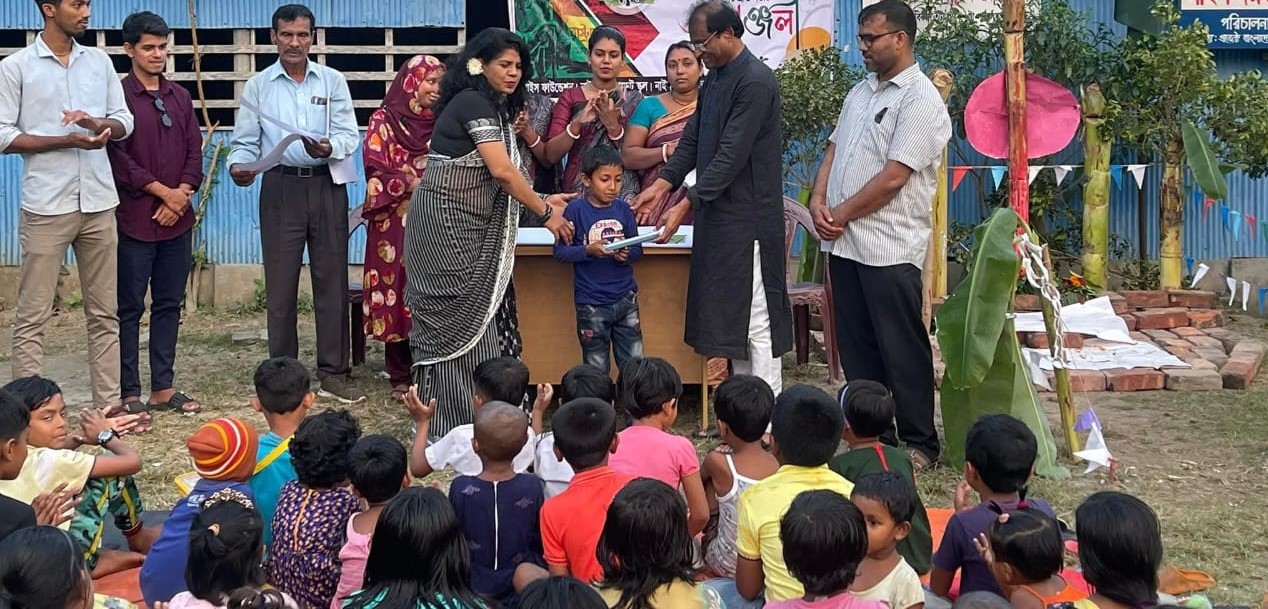
Project
Strengthening the Feminist Movement to Fight against Violation of Rights
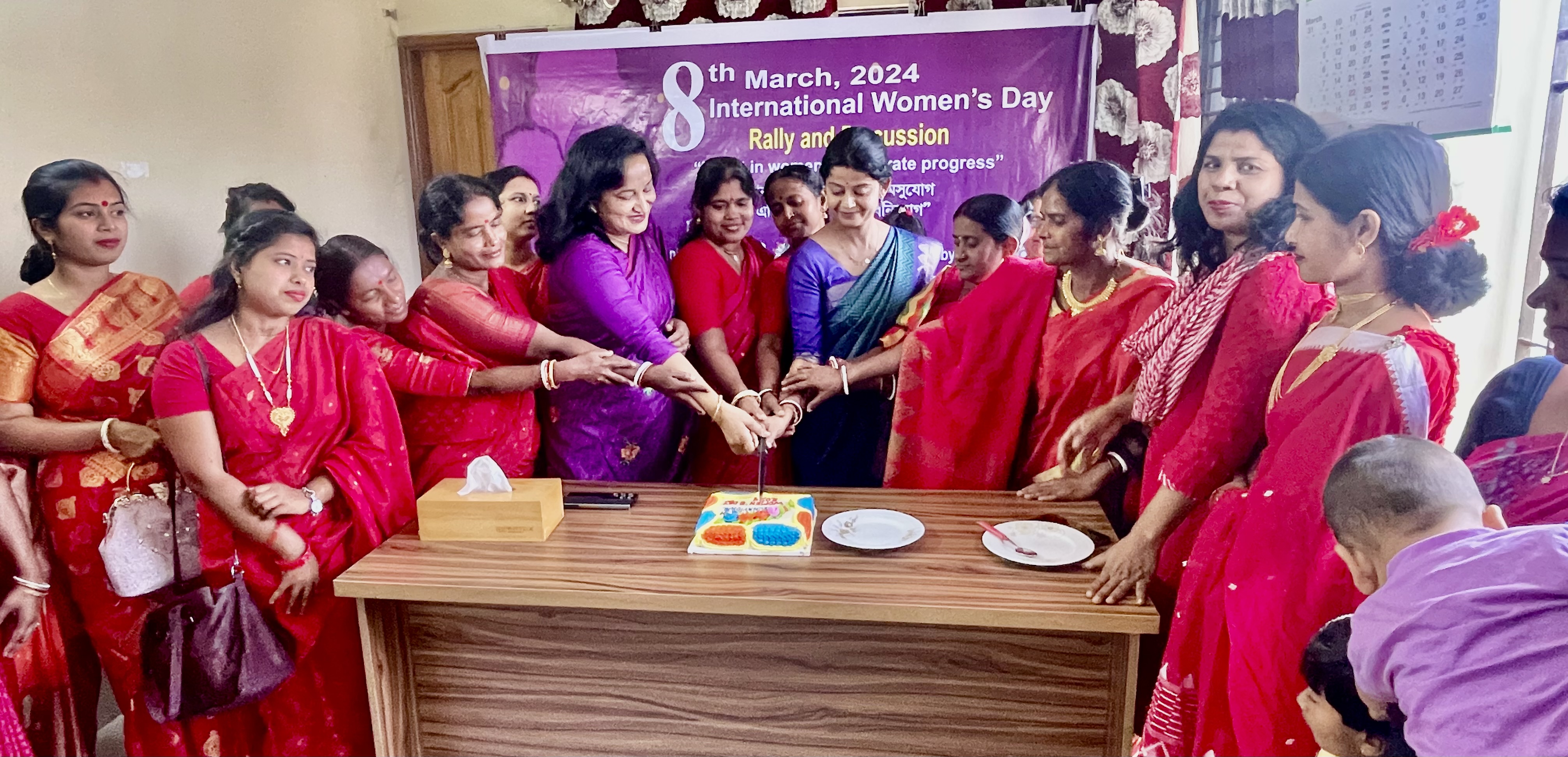
Rationale of the Project: This project is concerned with addressing gender-based violence, gender justice, domestic violence, state violence, combating early marriage, and protection at the targeted area in Bangladesh. These are key issues in the targeted areas and the feminist actors are located within these communities.
The main focus of this intervention is to strengthen and enhance the capacity of the existing feminist actors, women human rights defenders, Community Young Women Leader (CYWL) and stakeholders in Bangladesh to bring their voices to the public agenda for changes. In the past, NF and the community initiated many advocacy activities related to the minority Hindu Women’s paternal property rights, gender justice, violence against women, facts findings on the cases, and in general on human rights issues. There are gaps in addressing the structural causes of gender-based violence which will be specifically addressed in this project. Besides, NF will initiate advocacy for the re-formation of existing discriminatory laws and policies to address gender-based violence and promote women’s empowerment. The activities also will be undertaken to improve the safety and well-being of women, men, boys, transgender, people with disabilities, and girls in the communities, to protect them from gender-based violence.
Nice Foundation will engage the communities, working for gender equality, and implementing actions to prevent or counter gender-based violence. Policymakers, lawmakers, professionals, and other relevant stakeholders will be engaged so that our campaign on behavioural changes for advocacy can be stronger. Nice Foundation will cover more areas as a strategy to make awareness and sensitize the wider audiences to strengthen the advocacy. The district and regional level CSOs will be involved so that they can compare and collectively achieve the goal from the local to regional the national levels after a certain period.
In addition, NF aims to champion the reform of discriminatory laws and policies addressing gender-based violence. The project will involve activities geared towards improving the safety and well-being of individuals, encompassing women, men, boys, transgender individuals, people with disabilities, and girls in the communities. NF will actively involve the community illustrating their unwavering commitment to gender equality and implementing measures to prevent and combat gender-based violence.
To strengthen these actions for advocacy initiatives, the policymakers, professionals, and other pertinent stakeholders, ensuring a more impactful influence in broaden scope and scale through collaboration of CSOs, stakeholders situated in districts, and regions will be involved. This collaborative approach aims to collectively achieve of the objectives, spanning from the local to regional, to the national level.
Specific objectives
1. Strengthening the capacity of the CSOs, feminist human rights defenders and community Young women leaders in Bangladesh to bring their voices to the public agenda for changes.
2. To seek to ensure that women, girls, adolescents, boys, and their caregivers are sensitized and capacitated to prevent and reduce gender-based violence and establish gender justice in society.
3. To facilitate community participation in gender norms, values, and decision-making processes.
4. To enhance collaborative advocacy and movement initiatives at local, regional, and national levels.
Beneficiaries of the project
The project will involve various segments of the communities. The beneficiaries will include youths, girls, caregivers, parents, people with disabilities, transgender individuals, women, husbands, teachers, local elected bodies, community leaders, religious leaders, journalists, staff members, volunteers, and CSOs. The comprehensive approach involves not only awareness-raising and the establishment of support groups but also advocacy initiatives. The interventions will cover directly more than 11,711 beneficiaries and indirectly approx. 45,000 beneficiaries.
Detail Activities of the Project
| 1.1 | Arrange Training of Trainers (TOT) on PSEA and Gender Justice for CSO and the project Staff |
| 1.2 | Organize Monthly and ad-hoc online meetings with the CSO on project progress and implementation |
| 1.3 | Organize Annual in-person meetings with all CSO and project staff members |
| 1.4 | Develop PSEA/Gender and safeguard policy for the CS organizations |
| 1.5 | Training for project and CSO staff members on facts findings, case management, and reporting |
| 1.6 | Quarterly meeting with Community Young Women Leaders and Feminist Women Human Rights Defenders including PWD, Transgender |
| 2.1 | Arrange Monthly meetings with Women Groups (PWD and Transgender |
| 2.2 | Arrange Monthly Meeting Girls/Adolescents Group (PWD, Transgender) |
| 2.3 | Arrange courtyard sessions to sensitization of Caregivers, PWD, Transgender |
| 2.4 | Develop awareness materials, issue based position paper, and distribute them (Leaflets/ handouts/ad/press) |
| 3.1 | Organize Union level dialogue sessions with men and women on GBV, gender norms, decision-making, and inclusion |
| 3.2 | Organize Upazila-level dialogue sessions with men and women on GBV, gender norms, decision-making, and inclusion |
| 3.3 | Organize District level dialogue sessions with men and women on GBV, gender norms, decision-making, and inclusion |
| 4.1 | Organize training for Village Group women leaders women on GBV, gender norms, decision-making, and inclusion |
| 4.2 | Organize sessions for Men social actors women on GBV, gender norms, decision-making, and inclusion |
| 4.3 | Organize Training for young boys and girls leader on GBV, gender norms, decision-making, and inclusion |
| 4.4 | Arrange International Women’s Day, International Girl Child Day, and 16 Days of Activism by the community, CSO and NF project team. |
| 4.5 | Arrange Advocacy dialogues on GBV, Trans and gender justice with LEB, lawyers, law enforcing agencies, professional groups, service providers, journalists |
| 4.6 | Arrange meeting with CSOs/Clubs/religious leaders/progressive social leaders/Grassroots level to ensure engagement for Systemic Changes |
| 4.7 | Arrange peaceful mass mourning, candle lights and play card displays journalist engagement for reporting, etc. for awareness raising and public sensitization |
| 4.8 | Referral: Support to victims/survivors by referring to the service providers |
| Other Activities | |
| 5.2 | Prepare and Submission of issue-based petitions to policymakers, press Conference, letter campaigns and creating pressure on legislative changes related to GBV.. |
Key results of the Project
The Project aims to achieve a range of impactful results through its strategic interventions.
Strengthening the capacity of CBO, CYWL: NF has created a batch of 10 members of young women leaders at the organizational level and 20 Community Young Women Leaders at the community level. They will continue and strengthen their capacity to serve and fight against GBV and Gender Justice. Through this project, a batch of 50 Community Young Women Leaders will be created and capacitated. Moreover, 10 CBOs will be capacitated and strengthened for fight against gender based violence, mass movement and advocacy on the issues.
Community mobilization: Through engagement and mobilization of community members, including youths, girls, caregivers, parents, people with disabilities, transgender individuals, women, husbands, teachers, local elected bodies, and religious leaders participation in all the areas related to GBV will be increased. The project will fosters a sense of collective responsibility and empowerment within communities.
Increased awareness: Communities will become more aware of the issues surrounding gender-based violence. Awareness campaigns, community engagement, and educational initiatives contribute to a heightened understanding of the root causes and consequences of gender-based violence, and deprivation of girls and women will be increased.
Support groups: The establishment of support groups within communities will provide a platform for survivors and allies to share experiences, seek assistance, and collectively work towards combating gender-based violence. Support groups will contribute to building a strong solidarity and resilience.
Improved safety and well-being: Activities implemented under the project will contribute to tangible improvements in the safety and well-being of individuals, including women, men, boys, transgender individuals, people with disabilities and girls. This will involve the creation of safer environments and enhance access to support services.
Multi-level Advocacy Initiatives: In order to prepare for advocacy on the GBV, gender justice and women rights we will have series of meetings, union , sub-district, district and stakeholder levels dialogues.
Strategic collaborations: The project will collaborate with district-based, regional, Dhaka-based, and Cox's Bazar-based CSO enhances its overall capacity. These collaborations contribute to knowledge-sharing, resource pooling, and a more coordinated approach to addressing gender-based violence.
Feedback mechanisms: The project will establish an effective feedback mechanisms to ensure accountability to affected populations. Feedback will be gathered through surveys, focus group discussions, and complaint response mechanisms to help in adapting and improving project interventions based on community needs.
Project Indicators
Through the intervention directly 11,711 beneficiaries and indirectly 45,000 will be covered. Measuring the results of this Project will involve defining clear indicators that align with the project's objectives.

